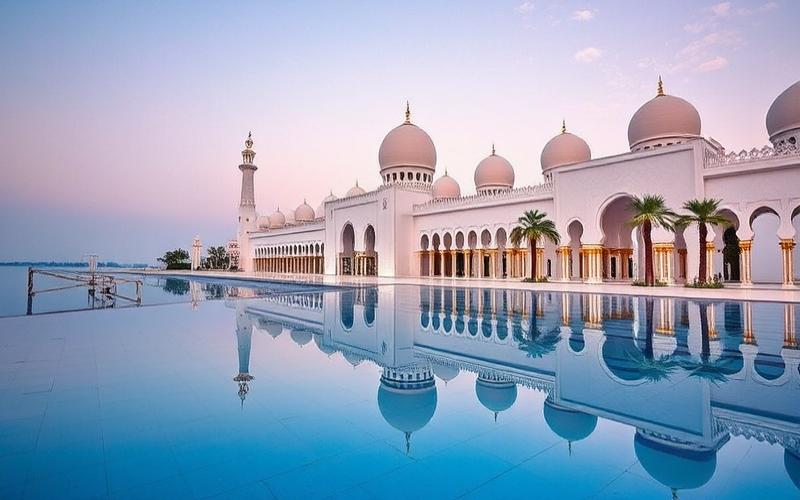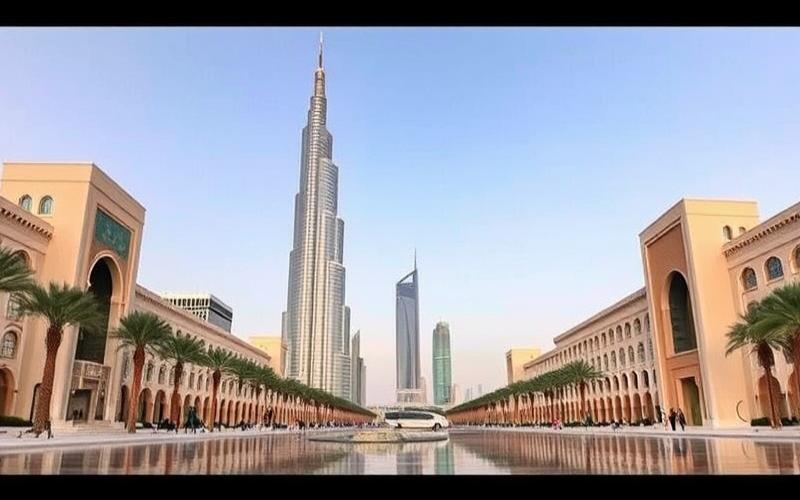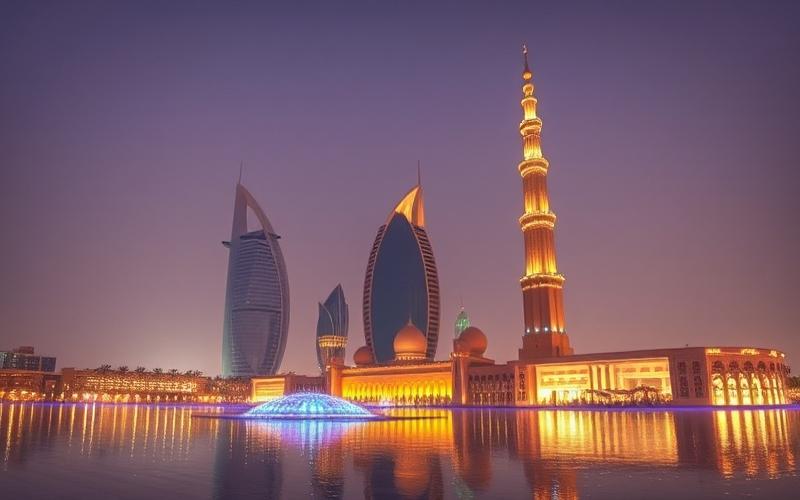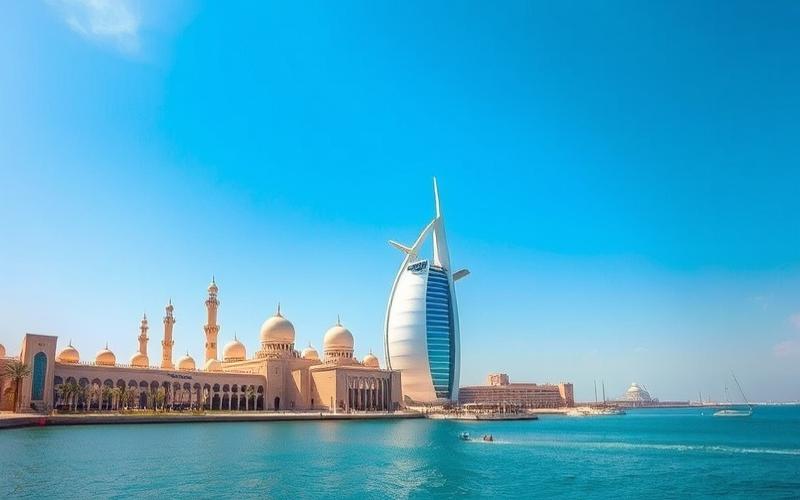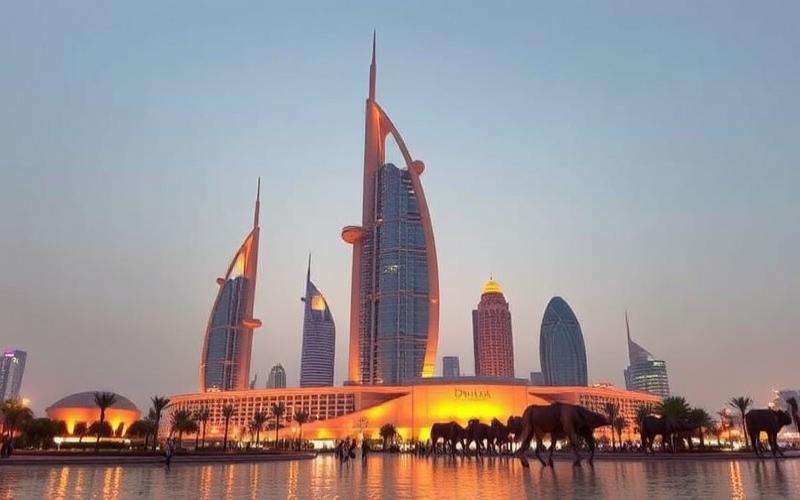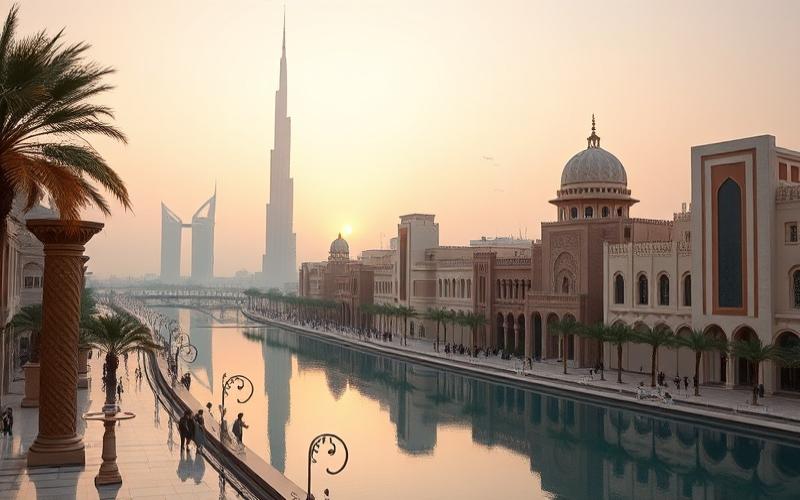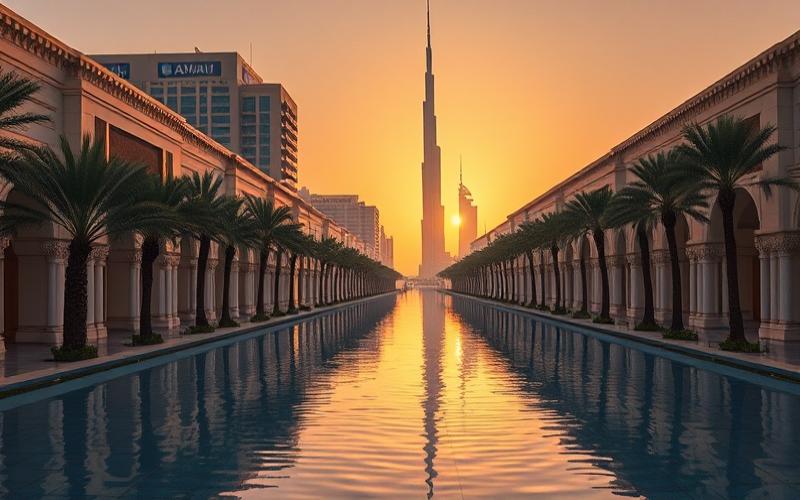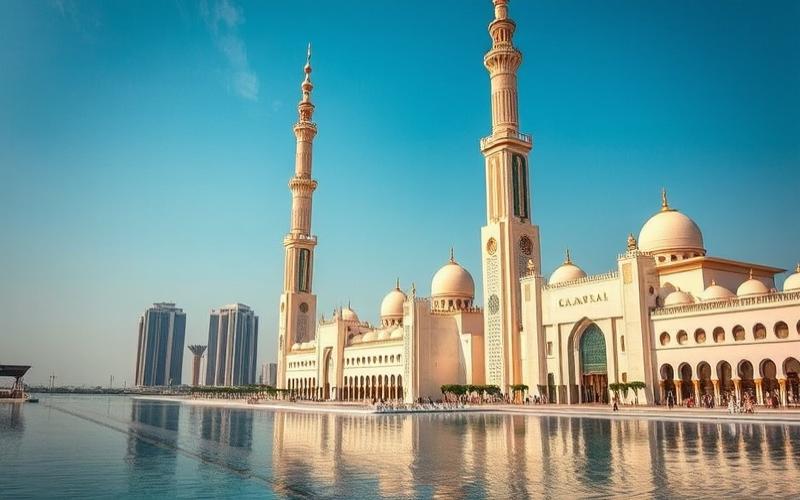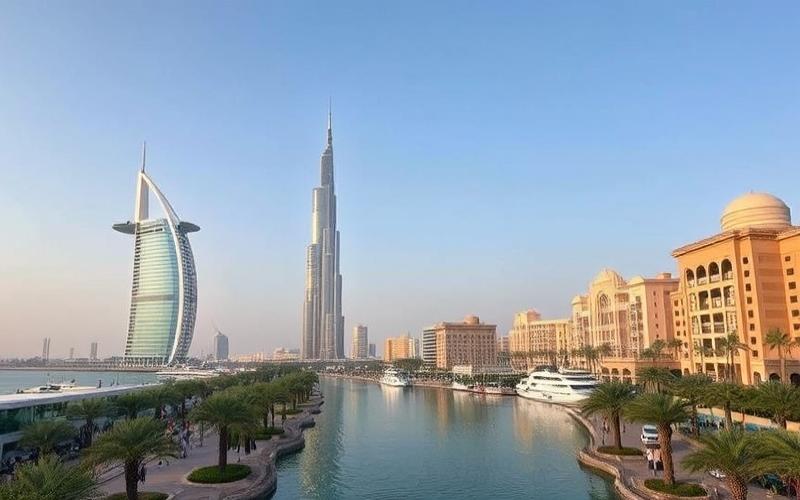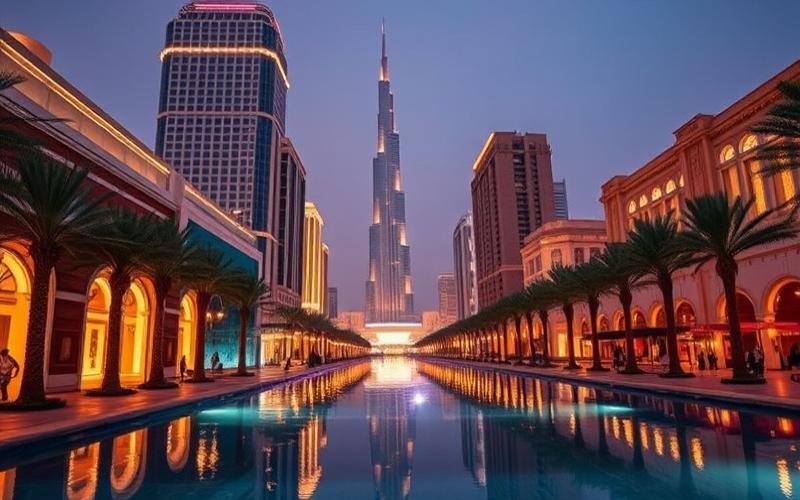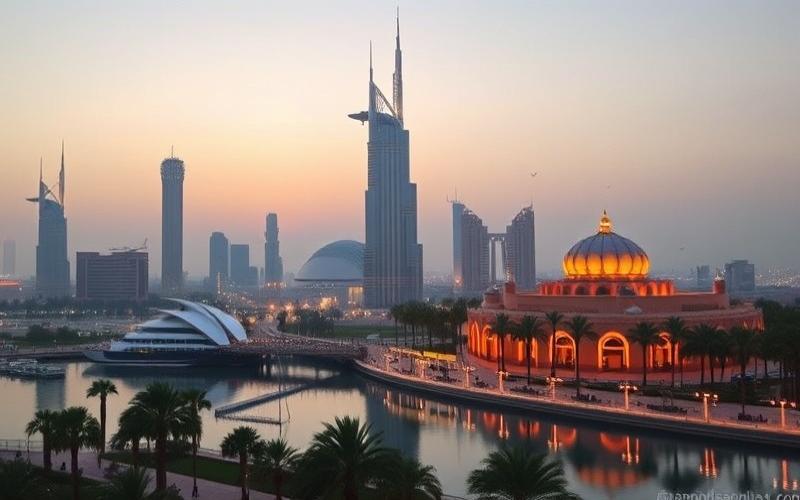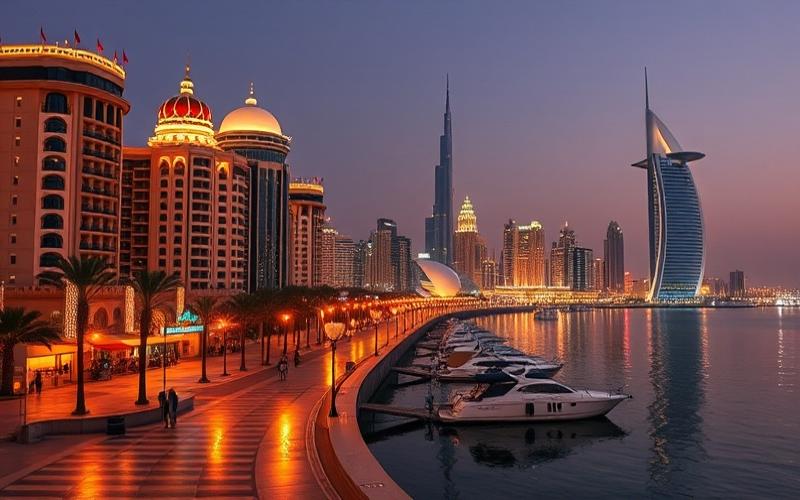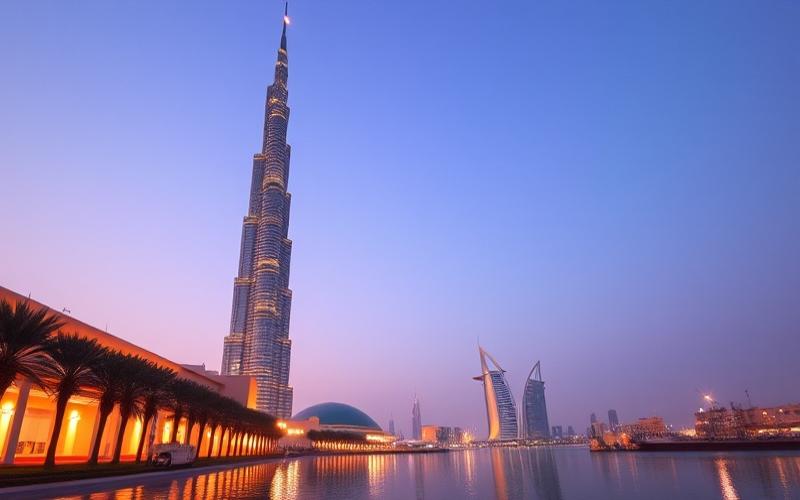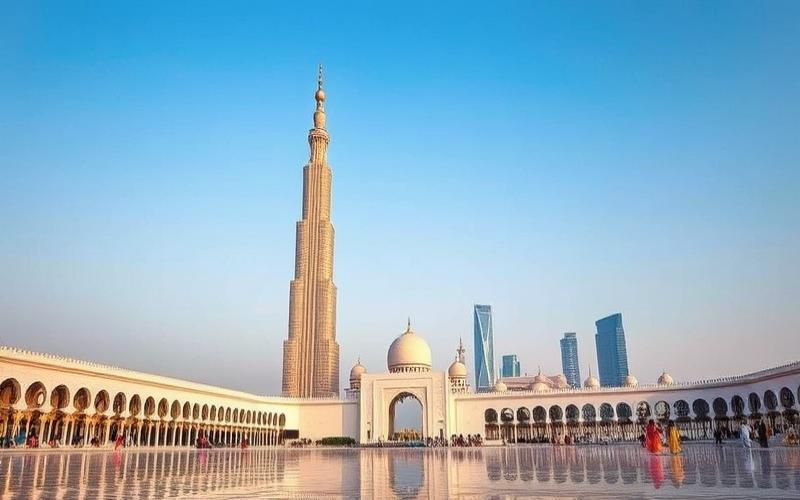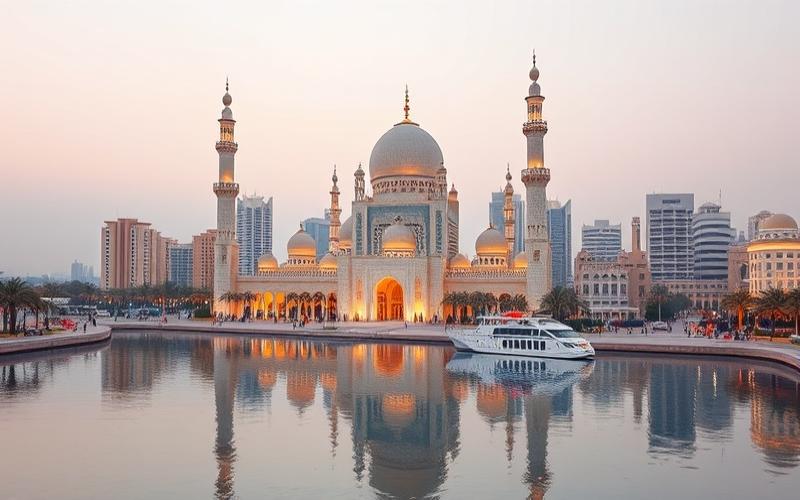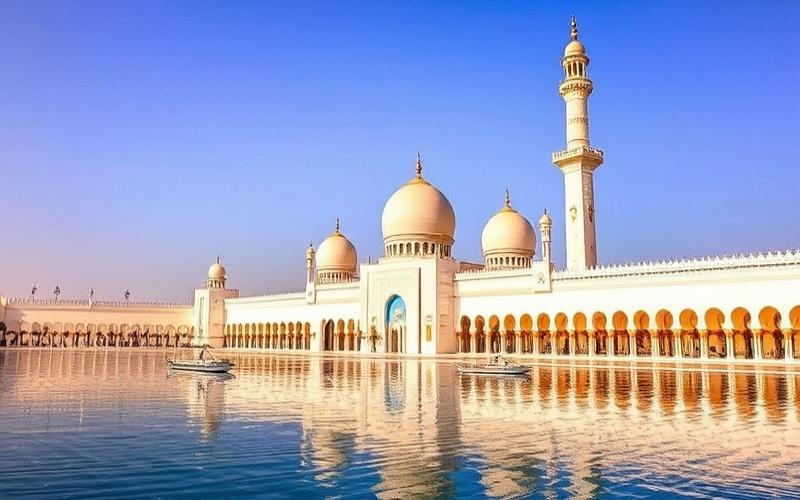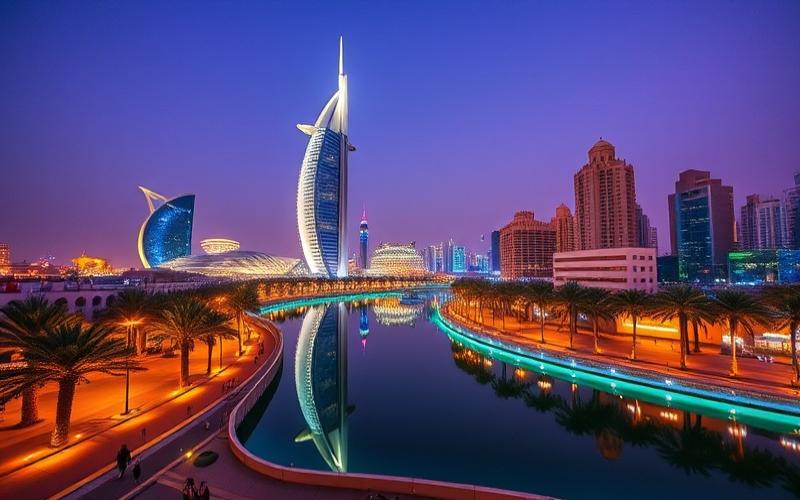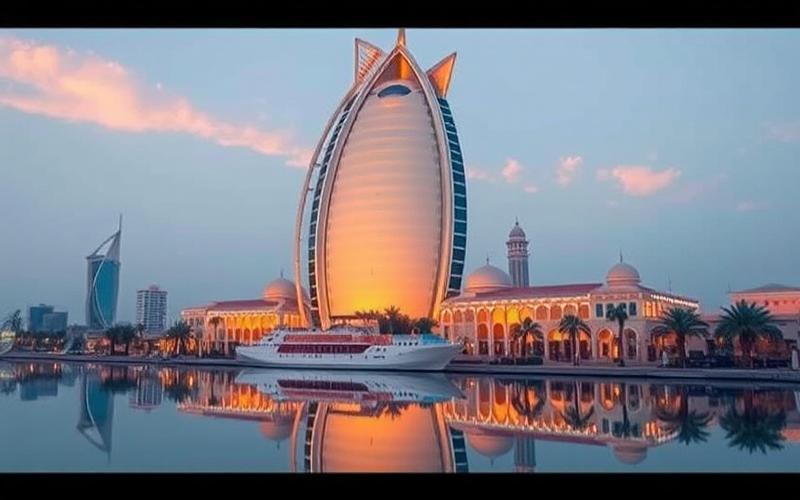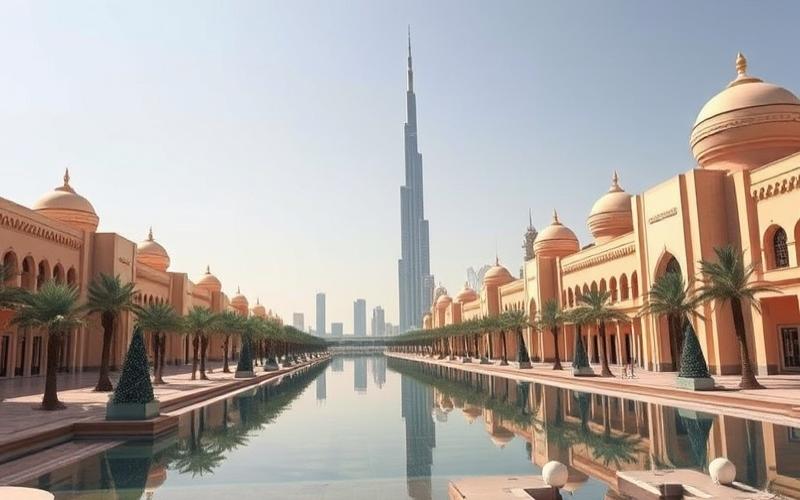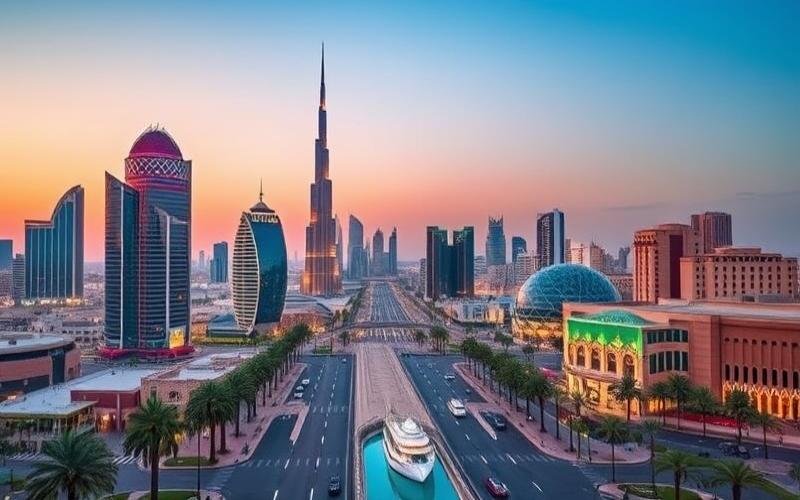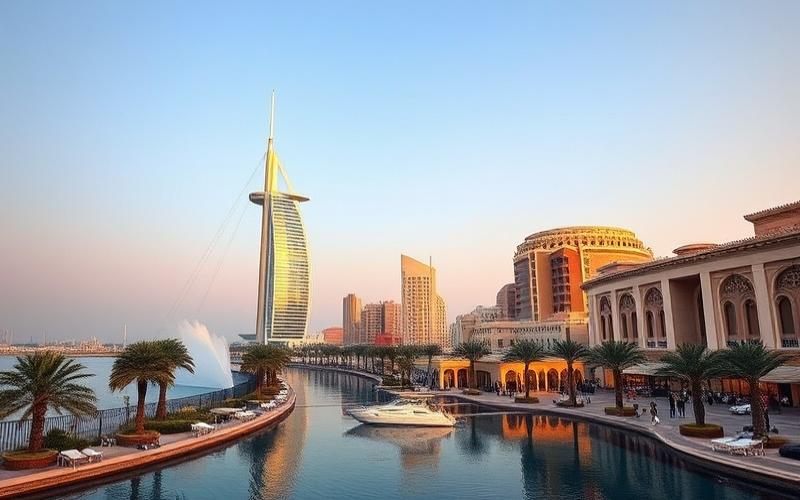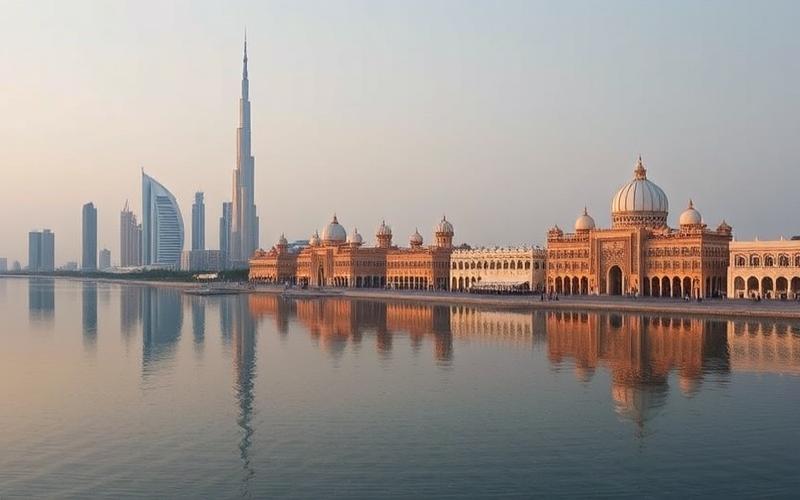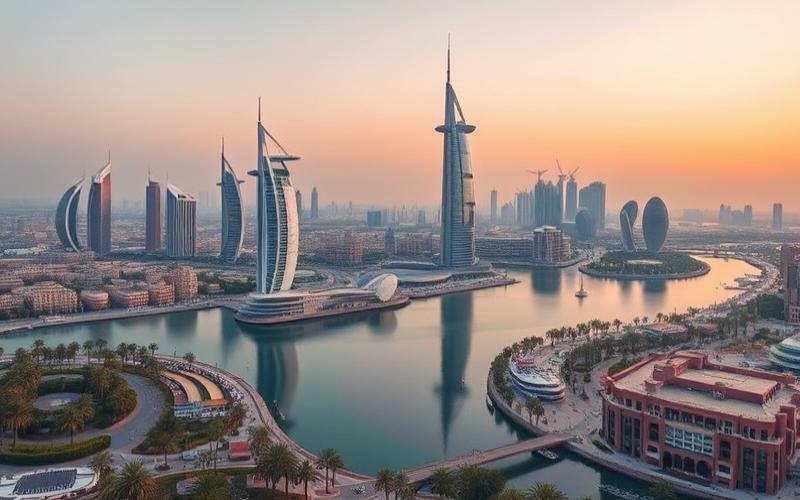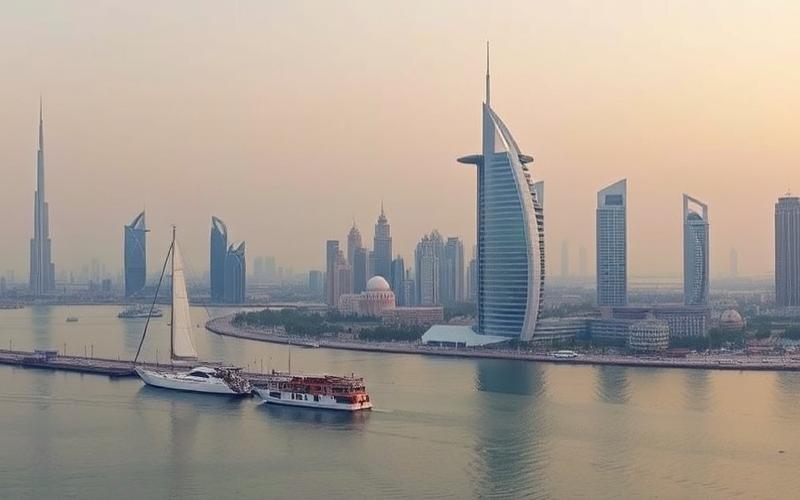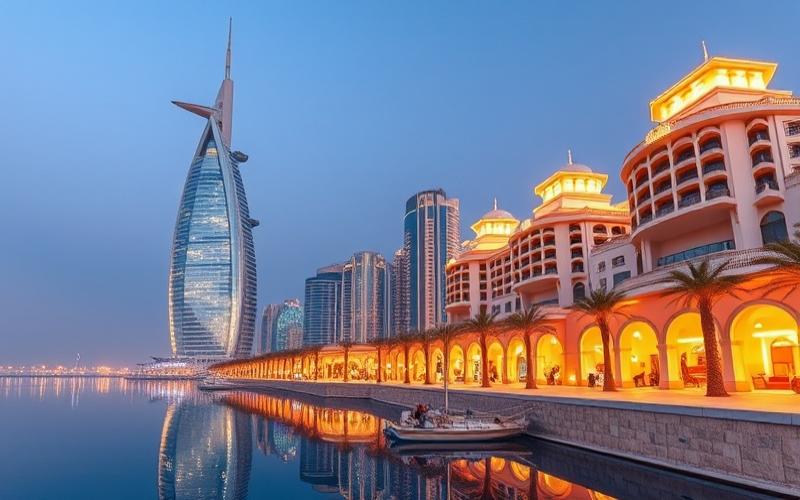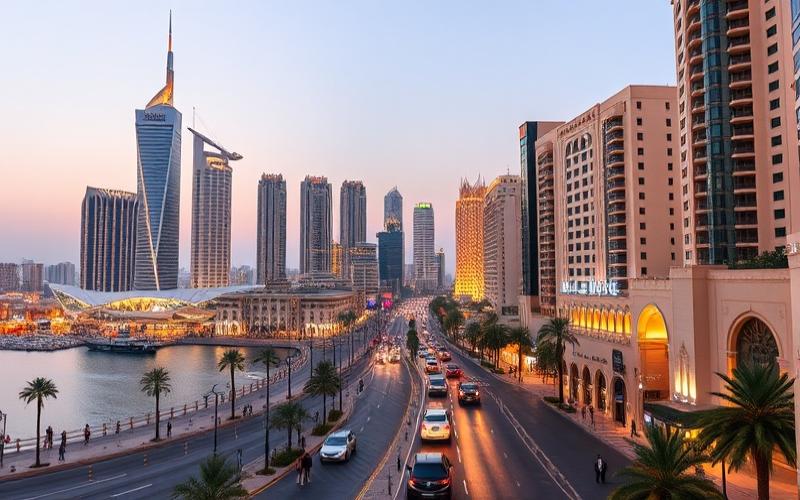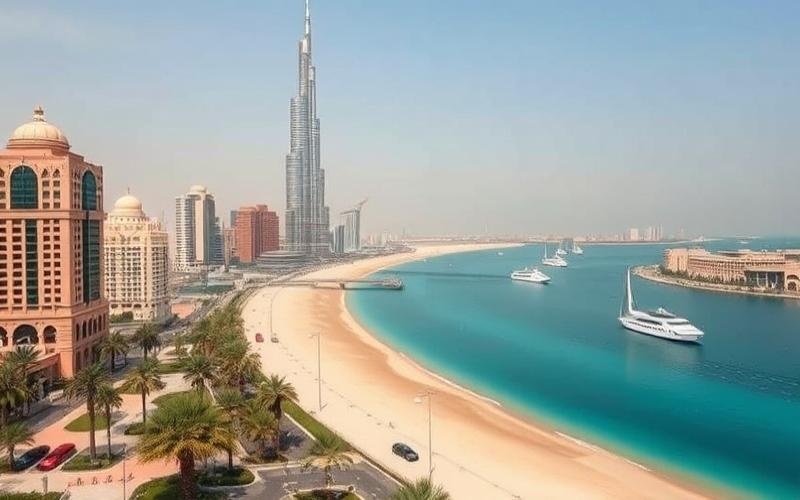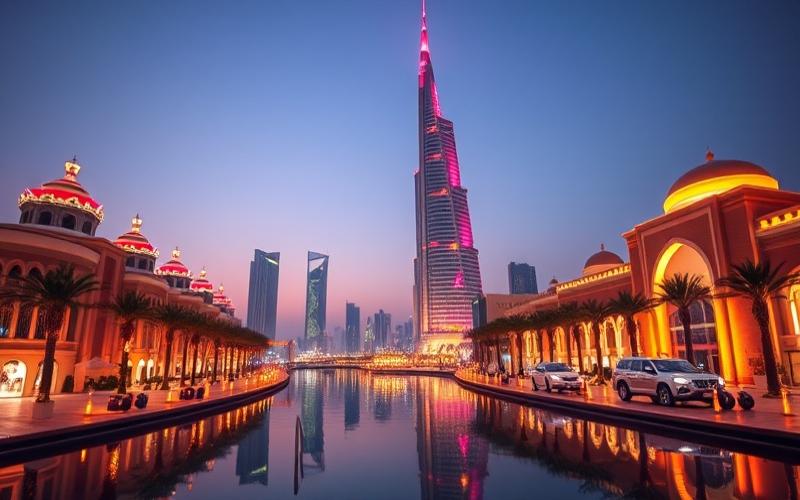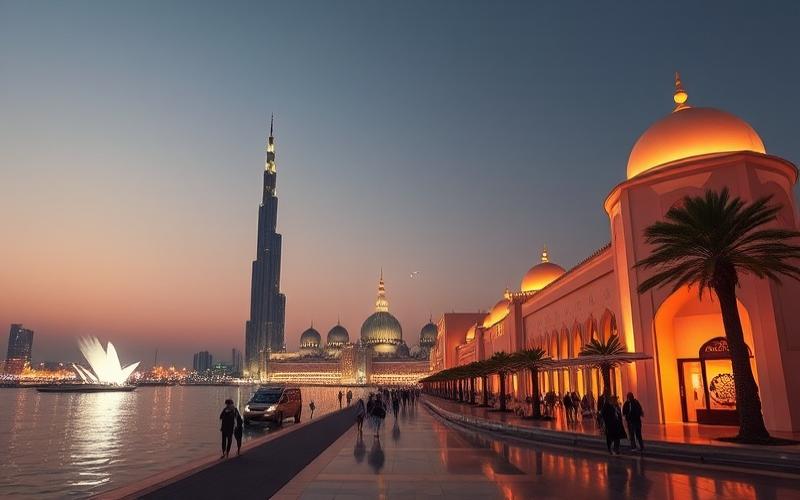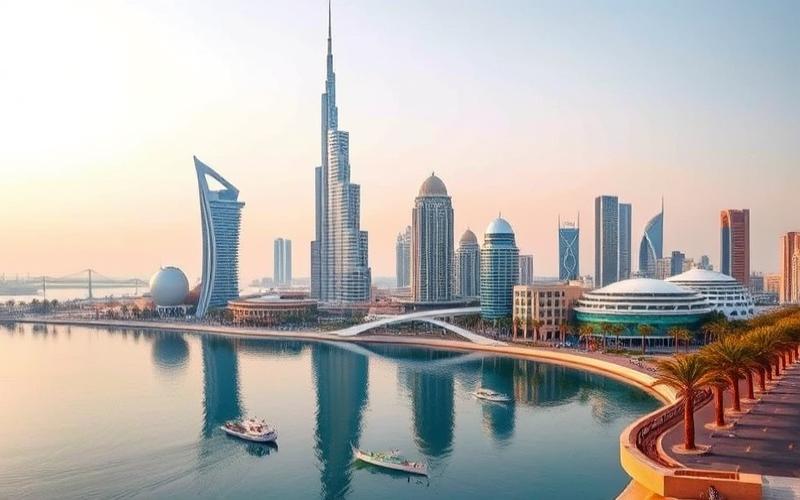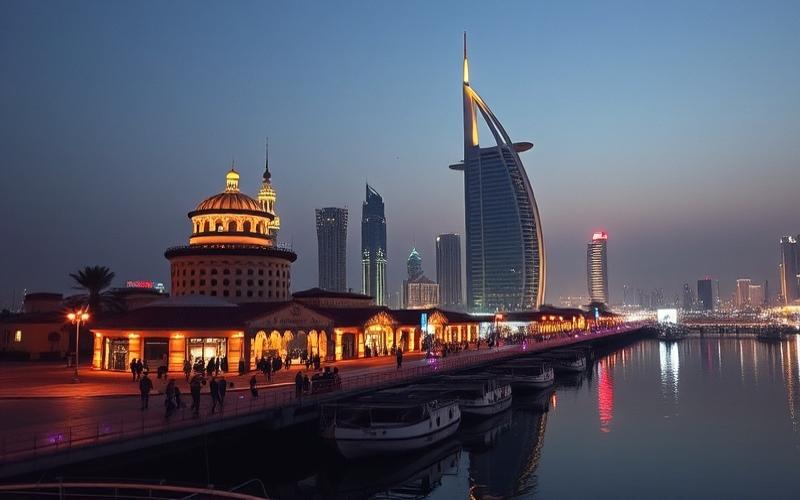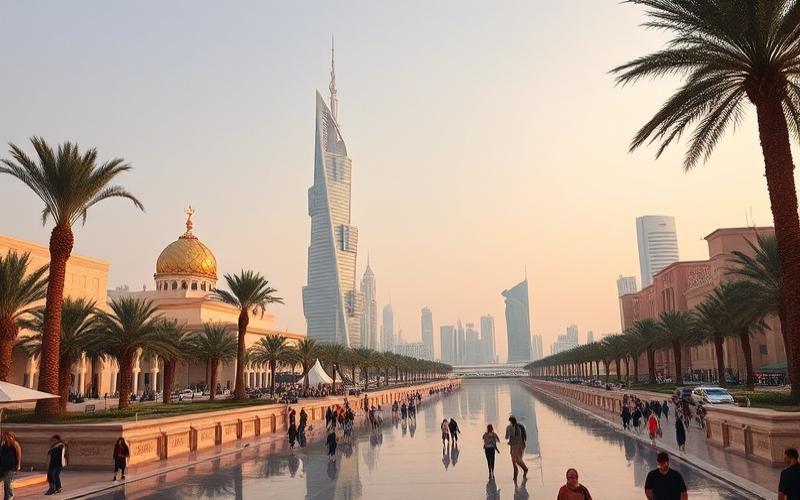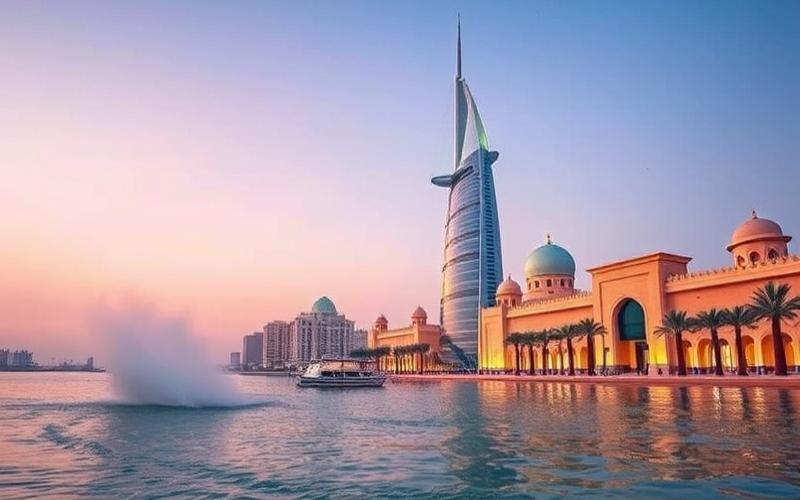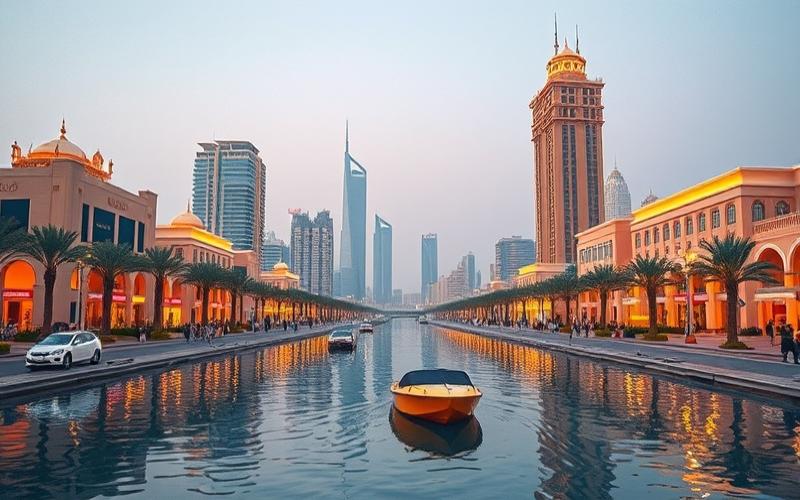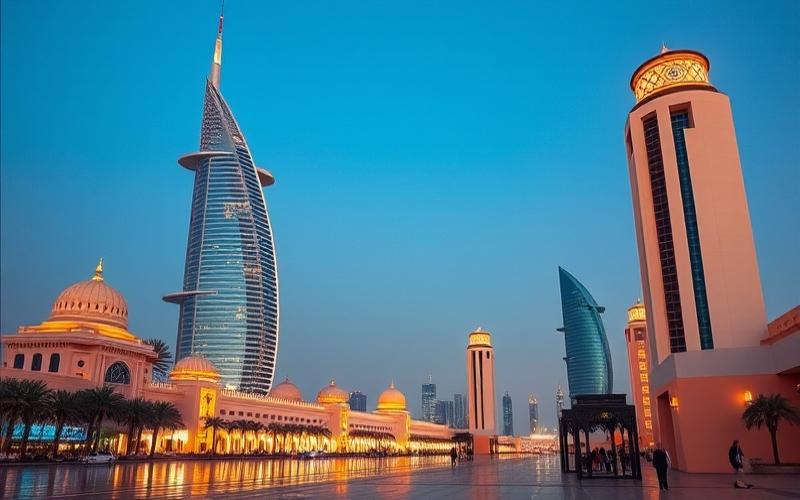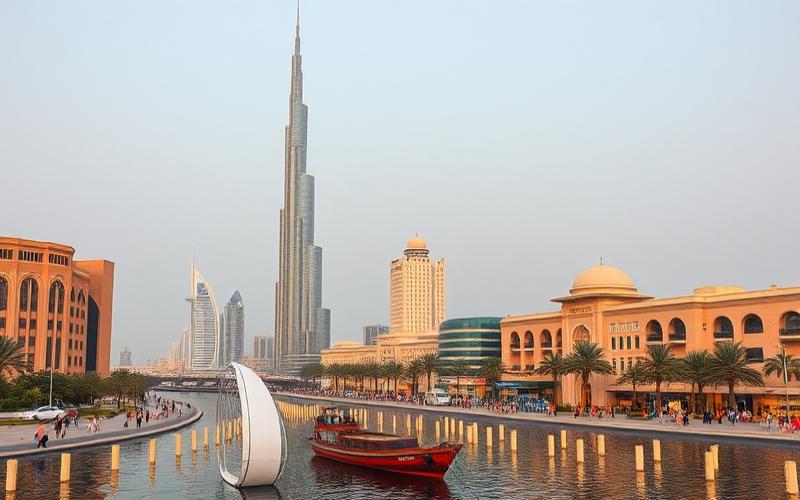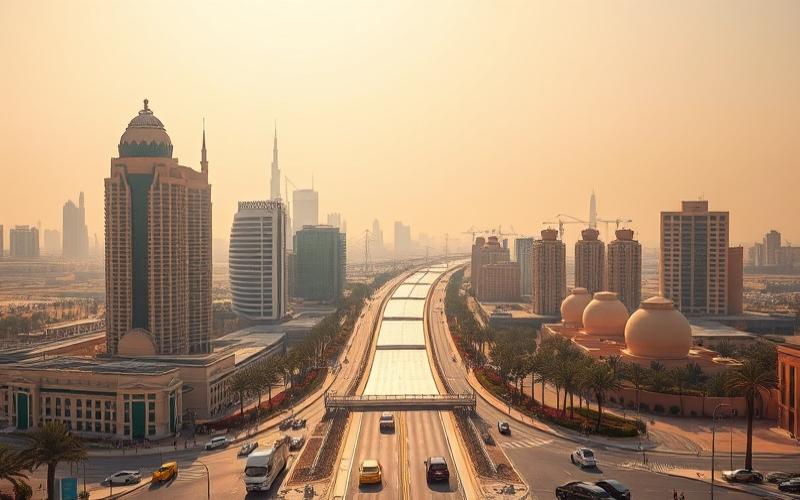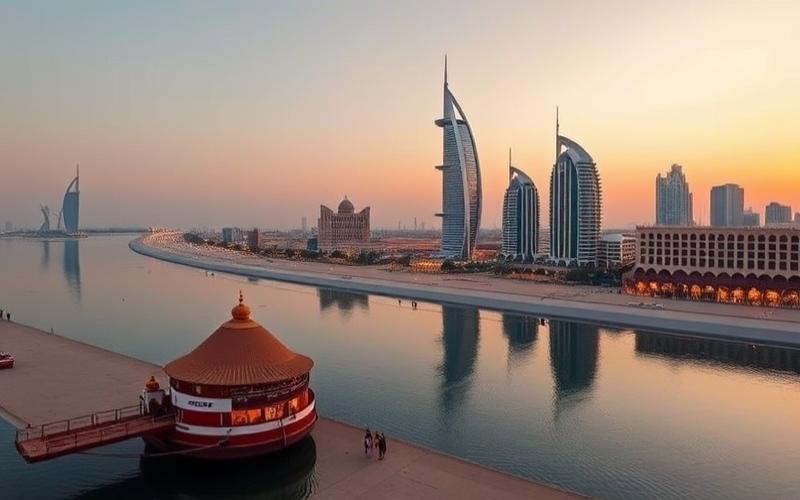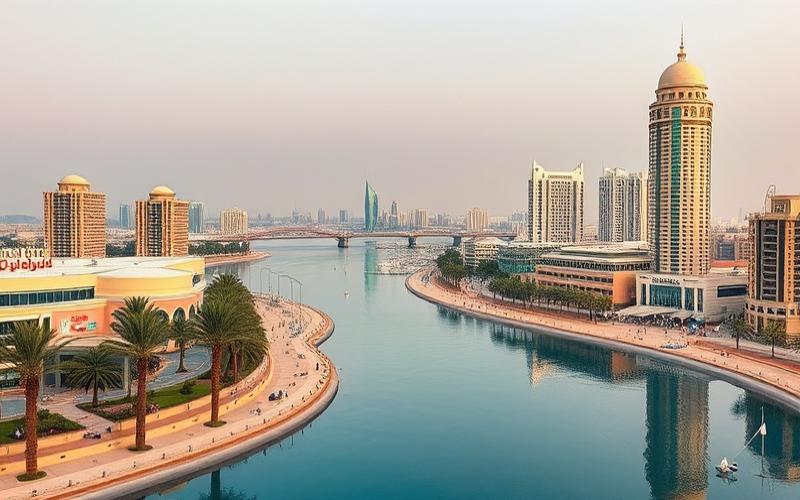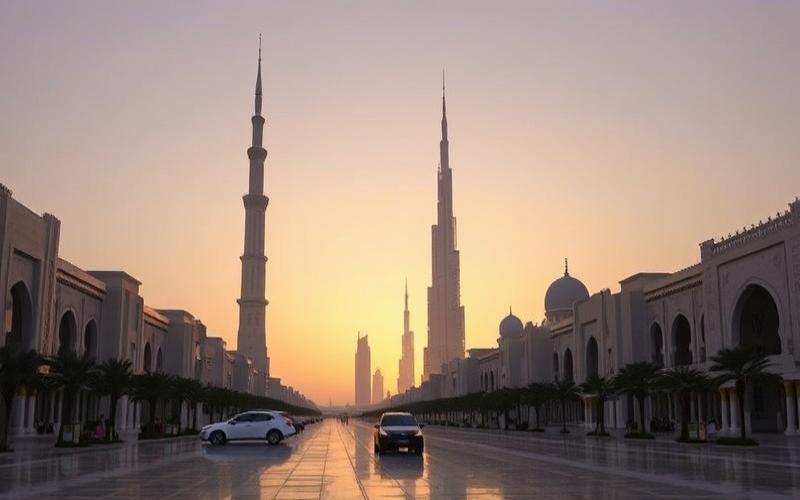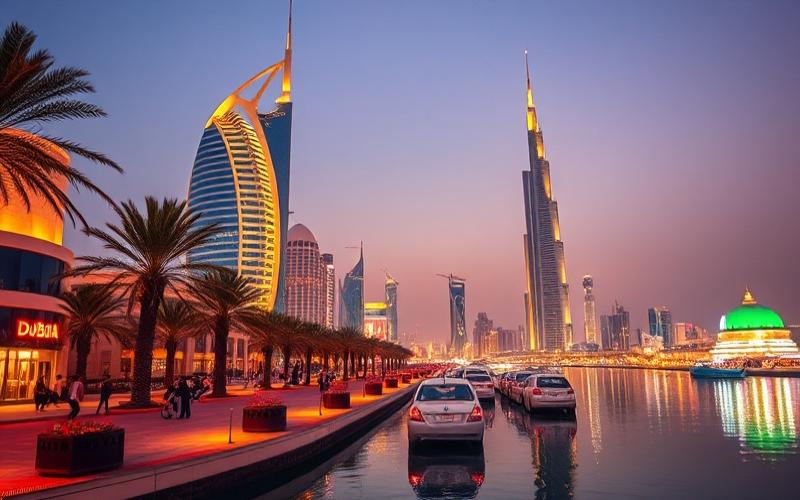
 Published on and written by Cyril Jarnias
Published on and written by Cyril Jarnias
Dubai’s real estate market continues to break records in 2025, driven by sustained demand and favorable economic prospects. This UAE emirate has established itself as a prime destination for real estate investors worldwide, offering unique opportunities across various market segments. Let’s take a closer look at the current trends shaping Dubai’s real estate landscape.
Dubai’s Real Estate Boom: Dizzying Numbers
The year 2024 was exceptional for Dubai’s real estate market, with unprecedented performance. Transaction volume reached a record high of 180,900, with a total value of AED 522.1 billion. This momentum reflects increased buyer confidence and sustained activity from real estate developers[1].
The upward trend continues in 2025, fueled by a steady influx of investors and expatriates attracted by Dubai’s economic stability and tax benefits. Real estate sale prices saw an impressive increase of 18% in 2024, and analysts predict an additional 10-12% increase for 2025[1].
This spectacular growth is explained by several factors, including Dubai’s economic diversification, its status as an international commercial hub, and its world-class infrastructure. Additionally, recent government reforms, such as allowing foreigners to own 100% of company capital, have strengthened the emirate’s appeal to international investors[4].
Good to know:
Dubai’s real estate market recorded record growth in 2024, with 180,900 transactions totaling AED 522.1 billion. Prices continue to rise in 2025, with an expected increase of 10-12%.
Trending Neighborhoods: Where to Invest in Dubai in 2025?
Dubai offers numerous investment opportunities in booming neighborhoods. Here are some of the most promising areas for 2025:
Dubai South: The Future Logistics Hub
Dubai South is emerging as one of the emirate’s most dynamic areas. Located near Al Maktoum International Airport, this region is experiencing rapid development and offers considerable long-term growth potential. Investors can still find properties at affordable prices before values skyrocket[2].
The neighborhood is destined to become a major logistics hub, with world-class infrastructure that will attract businesses and residents. Ongoing development projects promise to transform Dubai South into an integrated community offering a modern, connected living environment.
Al Furjan: An Expanding Family Neighborhood
Al Furjan is positioning itself as a prime residential neighborhood for families. Offering a harmonious mix of villas and modern apartments, this area is attracting more and more investors. The growing demand for family housing in this zone makes it a particularly interesting investment opportunity[2].
The neighborhood benefits from excellent infrastructure, with schools, shopping centers, and green spaces nearby. This combination of assets makes it an ideal integrated community for long-term residents, promising stable rental returns for investors.
Palm Jumeirah: Timeless Luxury
The iconic Palm Jumeirah remains one of Dubai’s most sought-after neighborhoods. This palm-shaped artificial island continues to attract investors worldwide, offering luxury villas and apartments with stunning views of the Persian Gulf[2].
Properties on Palm Jumeirah are synonymous with prestige and offer high rental yields along with steady price appreciation. New constructions and renovation projects on the island create interesting opportunities for those looking to invest in high-end real estate.
Dubai Marina: The City’s Beating Heart
Dubai Marina remains one of the city’s most coveted neighborhoods, offering an urban luxury lifestyle. Apartments with marina views are particularly in demand, attracting both residents and investors[2].
This central neighborhood benefits from excellent infrastructure, vibrant nightlife, and easy beach access. Property prices in Dubai Marina may be high, but investment returns often meet expectations, thanks to strong rental demand and continuous property value appreciation.
Good to know:
The most promising neighborhoods for real estate investment in Dubai in 2025 include Dubai South for its growth potential, Al Furjan for its family appeal, Palm Jumeirah for luxury, and Dubai Marina for its coveted urban lifestyle.
Price Evolution: Sustained Growth
Dubai’s real estate market has experienced sustained price growth for several years, and this trend continues in 2025. Here’s a detailed overview of price evolution across different market segments:
Residential Sector: Continuous Increase
Dubai’s residential sector recorded an impressive price increase in 2024, with an average rise of 18% across the entire market[1]. This trend continues in 2025, with forecasts indicating a further 10-12% increase in residential property prices.
This growth is particularly marked in luxury neighborhoods and developing areas. For example, property prices in Palm Jumeirah and Dubai Marina saw increases above the market average, reflecting strong demand for high-end properties in these coveted areas.
Commercial Sector: Dynamic Recovery
Dubai’s commercial real estate sector is also experiencing a dynamic recovery. Office rents climbed by 22% in 2024, a trend that continues in 2025[1]. This increase is particularly pronounced in established business areas like Business Bay and DIFC (Dubai International Financial Centre).
Growing demand for quality office spaces, combined with limited supply in certain neighborhoods, contributes to this upward price pressure. Commercial real estate investors can expect attractive rental yields, particularly in prime locations.
Hospitality Sector: Promising Prospects
Dubai’s hospitality sector, crucial to the emirate’s economy, shows signs of robust recovery. Hotel property prices and serviced apartments are increasing, driven by the recovery of tourism and business travel.
Investors in this sector can benefit from Dubai’s continuous tourism growth, with optimistic forecasts for the coming years. Well-located properties, particularly those offering spectacular views or easy access to tourist attractions, are experiencing the strongest value increases.
Factors Influencing Price Growth
Several factors contribute to sustained real estate price growth in Dubai:
- The continuous influx of foreign investors, attracted by economic reforms and the emirate’s growth prospects.
- Dubai’s economic diversification, which reduces its dependence on oil and strengthens its position as a commercial and tourist hub.
- Massive investments in infrastructure, including transportation network expansion and creation of new development zones.
- Relative land scarcity in the most coveted areas, which pushes prices upward.
Good to know:
Dubai real estate prices continue to rise in 2025, with an expected 10-12% increase in the residential sector. The commercial and hospitality sectors are also experiencing robust growth, offering attractive opportunities for investors.
Most Profitable Property Types: Where to Invest to Maximize Gains?
For investors seeking to maximize returns in Dubai’s real estate market, certain property types stand out for their profitability potential. Here’s an overview of the most promising options in 2025:
Luxury Apartments: A Prestige Investment
Luxury apartments, particularly in sought-after neighborhoods like Dubai Marina, Downtown Dubai, and Palm Jumeirah, offer attractive yield prospects. These properties benefit from strong rental demand from wealthy expatriates and high-end tourists.
The luxury segment in Dubai continues to break records, as evidenced by the recent sale of the world’s highest penthouse in Burj Khalifa, offered at $51 million[8]. While not all investors can aim for such heights, this market illustrates the appreciation potential of prestige properties in Dubai.
Residential Properties in Emerging Areas: Betting on Growth Potential
Developing areas like Dubai South and Al Furjan offer interesting opportunities for investors seeking long-term capital gains. These neighborhoods benefit from significant infrastructure investments and are expected to experience strong real estate value appreciation in the coming years.
Investing in apartments or villas in these emerging areas allows investors to benefit from more affordable entry prices while enjoying significant growth potential. Rental demand in these neighborhoods should also increase as communities develop and attract more residents.
Offices and Commercial Spaces: Capitalizing on Economic Recovery
Dubai’s commercial real estate sector offers attractive opportunities for investors. With economic recovery and the return of international companies, demand for quality office spaces is rising.
Established business areas like Business Bay and DIFC remain safe choices, offering stable rental yields. Investors can also consider opportunities in developing neighborhoods that are attracting more businesses through competitive rents and modern infrastructure[4].
Hotel Properties and Serviced Apartments: Benefiting from Tourism Boom
With the recovery of tourism and business travel, hotel properties and serviced apartments represent an interesting investment option. These properties typically offer high rental yields and benefit from professional management by hotel operators.
Investors can consider purchasing units in hotel complexes or serviced residences, particularly in sought-after tourist areas or near business centers. These properties offer the advantage of regular rental income without the hassles of daily management.
Eco-Friendly Properties: Investing in the Future
With Dubai’s focus on sustainable development, eco-friendly properties are gaining popularity. Green-certified buildings or those incorporating sustainable technologies are attracting more environmentally conscious buyers and tenants.
Investing in eco-friendly properties can offer a competitive advantage in the rental market and potentially better long-term value appreciation. Projects like Sustainable City in Dubai illustrate this growing trend toward more sustainable and environmentally friendly communities.
Good to know:
The most profitable property types in Dubai in 2025 include luxury apartments in sought-after neighborhoods, residential properties in emerging areas, office spaces in business centers, hotel properties, and eco-friendly real estate. Each option offers unique advantages in terms of rental yield and capital appreciation potential.
Future Outlook: What Awaits 2026 and Beyond?
As Dubai’s real estate market continues to thrive in 2025, investors and analysts are already looking to the future to anticipate upcoming trends. Here’s an overview of prospects for 2026 and beyond:
Market Stabilization and Sustainable Growth
Experts predict a gradual stabilization of Dubai’s real estate market between 2026 and 2027. This evolution should lead to a healthier balance between supply and demand, thereby strengthening the market’s long-term stability[1].
This stabilization doesn’t mean growth will stop, but rather a more moderate and sustainable price progression. Investors can expect more stable returns and continued property value appreciation, though at a less frenetic pace than observed in 2024-2025.
Impact of New Regulations
The introduction of new regulations in the real estate sector should play a crucial role in shaping the market from 2026 onward. These measures aim to strengthen transparency, protect investors, and ensure sustainable sector growth.
Investors will need to pay attention to these regulatory developments, which could influence investment strategies and market practices. These changes should help strengthen international investor confidence and consolidate Dubai’s position as a premier real estate investment destination.
Rise of Real Estate Technologies
The growing adoption of technology in the real estate sector should accelerate from 2026. Innovations such as virtual reality for property tours, artificial intelligence in real estate management, and blockchain integration for real estate transactions should become more common.
These technological advances could transform how investors interact with Dubai’s real estate market, offering new opportunities and improving transaction efficiency[5].
Sustainable Development at the Core of Concerns
The focus on sustainable development and green construction should intensify in the coming years. Dubai aims to become one of the world’s most sustainable cities, which will be reflected in future real estate projects.
Investors who position themselves in sustainable and energy-efficient properties could benefit from increased demand and better long-term valuation. Projects incorporating green technologies and sustainable construction practices should gain popularity among buyers and tenants.
Demographic Evolution and Its Market Impact
Demographic changes, including the continuous influx of expatriates and growth of the local population, will continue to influence Dubai’s real estate market. Demand for housing adapted to different population segments, from young professionals to families, should remain strong.
Investors will need to pay attention to these demographic trends to target property types and locations that will best meet future market needs. Neighborhoods offering a good work-life balance, along with amenities adapted to different lifestyles, should experience sustained demand.
Good to know:
Prospects for Dubai’s real estate market beyond 2026 include gradual market stabilization, the impact of new regulations, the rise of real estate technologies, increased focus on sustainable development, and the continuing influence of demographic changes. These factors will shape future investment opportunities in the emirate.
Dubai’s real estate market continues to offer attractive opportunities for investors in 2025 and beyond. With sustained price growth, booming sectors, and diverse profitable properties, the emirate affirms itself as a prime destination for international real estate investment. Whether you’re seeking high rental yields, long-term capital appreciation, or portfolio diversification, Dubai offers a range of options to meet your investment objectives.
Disclaimer: The information provided on this website is for informational purposes only and does not constitute financial, legal, or professional advice. We encourage you to consult qualified experts before making any investment, real estate, or expatriation decisions. Although we strive to maintain up-to-date and accurate information, we do not guarantee the completeness, accuracy, or timeliness of the proposed content. As investment and expatriation involve risks, we disclaim any liability for potential losses or damages arising from the use of this site. Your use of this site confirms your acceptance of these terms and your understanding of the associated risks.

